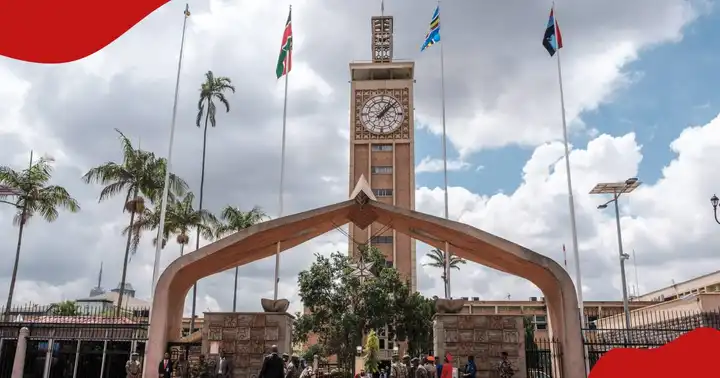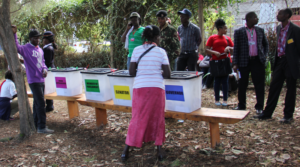Celebrating Progress, Confronting Challenges as Kenya’s Constitution Turns 14 Years
The Constitution Begins to Steer Through Its Teenage Years Toward Democracy and Accountability

Nairobi, August 2024 – As our Constitution marks its 14th anniversary, on August 27, this moment is more than just a celebration—it’s a call to renew our commitment to the freedoms it enshrines. This is a time for reflection on the achievements and challenges that have shaped our nation under this transformative legal framework. When the Constitution was promulgated in 2010, it was lauded as a progressive blueprint for governance, intended to address historical injustices, enhance democracy, and promote inclusivity.
Now, as it embraces its teenage years, our nation’s foundational document stands at a crossroads, balancing the promise of its ideals with the challenges of its realization. Much like a teenager navigating the complexities of growth, our Constitution is embarking on a new phase of maturity. We must ensure that its promise evolves and strengthens through constant vigilance, persistently reminding those entrusted with its protection that the Constitution requires full and uncompromised implementation.
At Journalism Hub East Africa, we believe that freedom of expression is not just a right, but the cornerstone of any true democracy. Guided by our motto, People Need to Know, we are committed to exposing the flaws in governance, shedding light on corruption, and amplifying the voices that are too often silenced. These principles are enshrined in the Bill of Rights, and it is imperative for all Kenyans to safeguard these freedoms while striving to fulfill the aspirations that our transformative Constitution represents.
One of the Constitution’s most significant achievements, is devolution, which serves as a true inspiration of the power of localized governance. However, the ongoing challenge is ensuring that the broader values of good governance, transparency, and human rights are not just principles on paper but are actively practiced. As we celebrate this milestone, let us recommit ourselves to nurturing these values, ensuring that the promise of our Constitution continues to grow and flourish with the maturity that this teenage milestone symbolizes.

Devolution: A Landmark Achievement
Devolution is undoubtedly the crown jewel of Kenya’s 2010 Constitution. It has fundamentally restructured the governance framework by decentralizing power from the national government to 47 county governments. This system was introduced to promote equitable development, enhance public participation, and ensure that resources reach even the most marginalized regions.
Over the past 14 years, devolution has transformed the socio-economic landscape of Kenya. Regions previously neglected by centralized governance, such as Turkana, Mandera, and Wajir, have seen substantial improvements in infrastructure, healthcare, and education. The establishment of county governments has also brought decision-making closer to the people, allowing for tailored solutions to local challenges. For instance, Makueni County’s innovative universal healthcare program is a testament to how devolution has enabled localized, effective governance.
Devolution has also fostered political inclusivity by creating opportunities for leadership at the county level. Women and youth have found new avenues to participate in governance, contributing to a more representative and diverse political environment. Moreover, the equitable distribution of resources, through the county revenue allocation formula, continues to somewhat address the historical economic imbalances that fueled regional disparities.
However, devolution has not been without its challenges. The initial years were marred by teething problems, including inadequate capacity at the county level, corruption, and conflicts between county and national governments over resource allocation. The mismanagement of resources in some counties has also highlighted the need for better oversight and accountability mechanisms.
Moreover, the tug-of-war between governors and Members of County Assemblies (MCAs)—exemplified by the recent impeachment of Meru Governor Kawira Mwangaza—has occasionally hampered service delivery, highlighting the urgent need for a clearer delineation of powers within devolved units.

Judiciary: Guardians of Justice
The Judiciary has played a pivotal role in upholding the rule of law and safeguarding the rights enshrined in the Constitution. Under the leadership of successive Chief Justices, the Judiciary has made significant strides in asserting its independence and enhancing access to justice. The establishment of the Supreme Court has provided a critical avenue for the interpretation of constitutional matters, and its decisions have had far-reaching implications for the country.
One of the most notable achievements of the Judiciary was its decision to nullify the 2017 presidential election, a historic ruling that demonstrated its commitment to upholding electoral integrity. This bold move underscored the judiciary’s role as a check on executive power and reaffirmed the Constitution’s promise of fair and credible elections.
However, the Judiciary has faced numerous challenges, including allegations of corruption, backlog of cases, and inadequate funding. The delays in justice delivery have eroded public confidence in the legal system, while the persistent underfunding of the Judiciary has hampered its ability to function effectively. Additionally, the tension between the Executive and Judiciary, particularly regarding judicial decision and appointments, has raised concerns about the independence of the courts.

Human Rights and Freedoms: A Mixed Bag
The Bill of Rights in the 2010 Constitution is one of the most comprehensive in the world, guaranteeing a wide range of civil, political, economic, social, and cultural rights. Over the past 14 years, there have been significant strides in promoting and protecting human rights in Kenya. For instance, the right to access information has empowered citizens to demand transparency and accountability from public institutions.
The Constitution has also advanced the rights of marginalized groups, including women, children, and persons with disabilities. Affirmative action policies have led to increased representation of women in leadership positions, while the rights of children and persons with disabilities are now more prominently recognized and protected.
Despite these gains, challenges persist in the full realization of human rights. Cases of extrajudicial killings, police brutality, and violations of freedom of expression continue to undermine the spirit of the Constitution. The implementation of economic, social, and cultural rights has been uneven, with poverty and inequality still prevalent in many parts of the country. Furthermore, the two-thirds gender rule, which mandates that no more than two-thirds of any elective body shall be of the same gender, remains unimplemented, highlighting the gap between constitutional ideals and reality.

Electoral Reforms: Progress and Pitfalls
Electoral reforms were a central pillar of the 2010 Constitution, designed to rectify the flaws that had fueled electoral violence, notably during the 2007/08 post-election crisis and the annulment of the 2017 presidential election. The establishment of the Independent Electoral and Boundaries Commission (IEBC) was intended to oversee free and fair elections, while provisions for electoral disputes and the role of the courts have been strengthened.
While there have been improvements in the electoral process, challenges remain. The integrity of the IEBC has been questioned, with accusations of mismanagement and lack of transparency in the electoral process. The violence that marred the 2017 elections, albeit to a lesser extent than in 2007, indicates that electoral reforms are still a work in progress. The need for further reforms, particularly in the management of elections and the resolution of electoral disputes, remains critical.
Governance and Accountability: A Work in Progress
The 2010 Constitution introduced significant checks and balances to curb the excesses of the Executive and promote accountability. The establishment of independent commissions, such as the Ethics and Anti-Corruption Commission (EACC) and the Office of the Auditor-General, was meant to enhance oversight and ensure that public resources are used efficiently and transparently.
However, corruption remains a pervasive challenge in Kenya, undermining the gains made in governance. The slow pace of anti-corruption efforts, coupled with the perception of selective justice, has eroded public trust in the fight against graft. While the Auditor-General’s reports have highlighted financial irregularities in both national and county governments, the implementation of recommendations has been inconsistent, limiting the impact of these oversight mechanisms.

Constitution 2010 at 14: A Journey of Promise and Peril
As Kenya’s Constitution turns 14, it is evident that the journey of its implementation has been one of both promises and challenges. While there have been significant achievements, particularly in devolution, judicial independence, and the promotion of human rights, challenges remain in fully realizing the Constitution’s transformative potential.
At Journalism Hub East Africa, we believe that the journey forward demands a renewed commitment from all Kenyans to tackle these challenges, ensuring that the principles of good governance, accountability, and inclusivity, as envisioned in the Constitution, are fully realized for the benefit of every citizen.